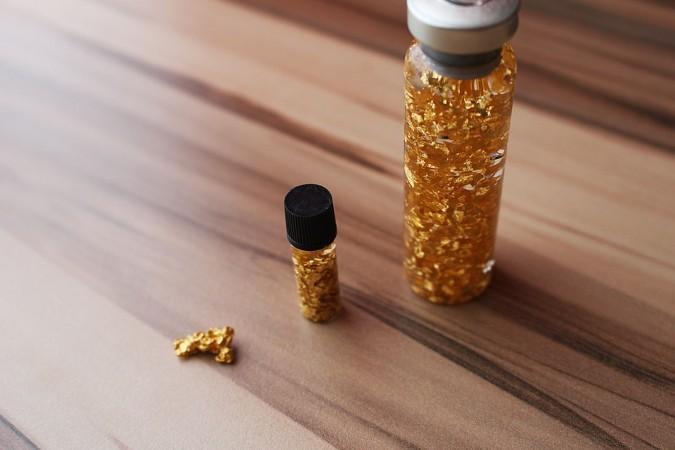
We don't have a goose that lays golden eggs, but we have a kind of tiny bacteria with an almost similar capability. No, it's not a fairy tale; the kind of bacteria we're talking about can turn toxic metals into gold. Researchers have now found the secret behind their neat trick.
For most living creatures, high concentrations of heavy metals such as copper and gold are toxic, but that's not the case for the bacterium C. metallidurans. According to a team of researchers from Martin Luther University Halle-Wittenberg (MLU), the Technical University of Munich (TUM) and the University of Adelaide in Australia, the bacteria has found a way to extract valuable trace elements from a compound of heavy metals and that too without poisoning itself. The interesting side-effect of the process is the formation of tiny gold nuggets.
This phenomenon was proven in a 2009 research, and now the process is being explained in a new study that's published online in Metallomics.
C. metallidurans lives in the soil where the organism often comes into contact with two types of heavy metals -- copper and gold. The bacterium then converts the metals into a form that is easier to absorb as both the metals can put the bacterium at risk for heavy metal poisoning or metal toxicity.
"Apart from the toxic heavy metals, living conditions in these soils are not bad. There is enough hydrogen to conserve energy and nearly no competition. If an organism chooses to survive here, it has to find a way to protect itself from these toxic substances," explains study researcher Professor Dietrich H. Nies at MLU.
C. metallidurans have a unique way to get rid of extra copper or gold involving the use of an enzyme known as CupA that transforms both gold and copper back to their original forms. Therefore, gold compounds inside the bacteria are transformed into harmless microscopic gold nuggets.
"This assures that fewer copper and gold compounds enter the cellular interior. The bacterium is poisoned less and the enzyme that pumps out the copper can dispose of the excess copper unimpeded," Nies explained in a statement.
According to a Newsweek report, Nies said that once this new process for generating gold is perfected, it could be used for anything.
"You can do everything with gold, however, bringing a ring to your love is the nicest way to use it," said Nies.








